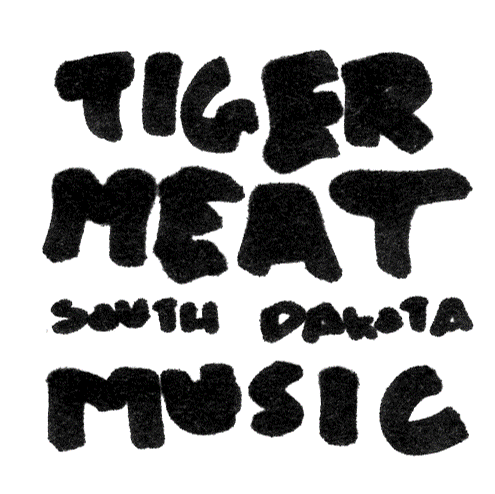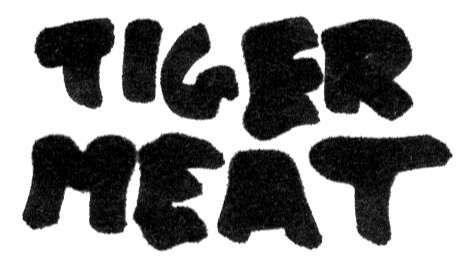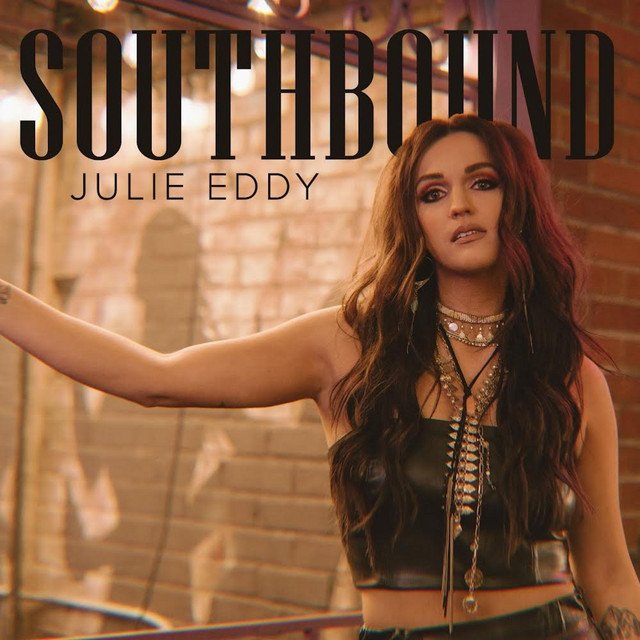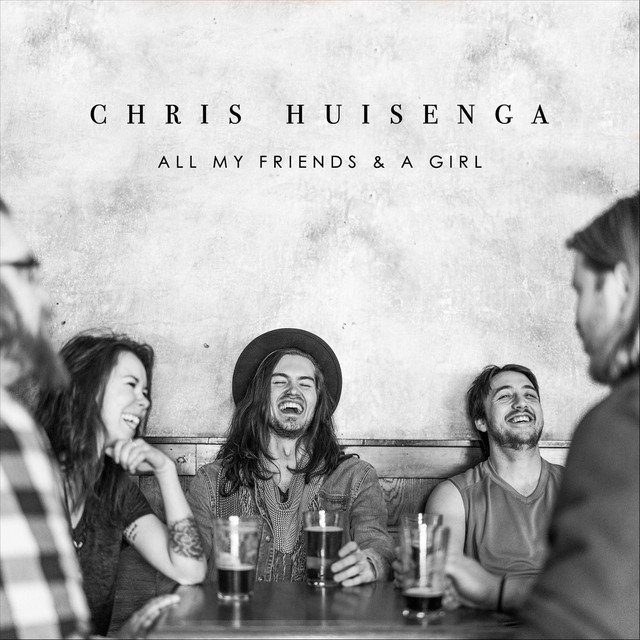Tiffany Johnson
Over Emotional
2022 | Pop, Country
— track 1: “Anybody Else”
Tiffany Johnson: One of the biggest turning points in my career is — there's this thing in Deadwood called the Wild West Songwriters Festival. I remember when I went as a kid, I didn't know songwriting was a real job. Like, I knew there was the singers, and then singer-songwriters, but I didn't know there was just songwriters, and you could just do that. It was mind-blowing when I went and there was people that have written songs for Carrie Underwood and Old Dominion, and all these famous people in country music. I was blown away. I was seven years old at the time. Later I was like, "There's no way these, these real songwriters and label executives would come to Deadwood," but they actually did, and that's how I got connections to Nashville.
I grew up in Rapid City, South Dakota and it was a great time. I did ballet and theater and stuff growing up. Just any opportunity to get on a stage, I loved it. My dad, Ross Johnson, was in a band growing up called the Lonely Rangers, so he was musical. He helped me learn how to play guitar, and be on a stage, and all of that stuff. I got a guitar for my eighth birthday. I had a Taylor Swift edition guitar, and it had sparkles on it. It was great. I took guitar lessons, but most of what I learned was from my dad. I play piano too. I did percussion in high school. I played flute and saxophone at one point, too. I grew up the biggest fan of Taylor Swift. I was the biggest Swiftie ever. I listened to a lot of country growing up. I loved Dolly Parton, Kelsea Ballerini, Maren Morris, I was a huge fan of females who wrote their own music. I thought there was something so incredibly powerful and untouchable about somebody sharing their own story. I write nonfiction songs, I draw from my own life a lot.
When I was 12 or 13 I went to a camp at the Country Music Hall of Fame [in Nashville]. That was so fun. After that I did this thing called Tin Pan South, which I have done for three or four years. It's basically a songwriter festival, but there's also a seminar for people that want to have more of a camp experience, and to meet people, and listen to speakers and stuff like that. During that seminar, they have a competition where you can enter a song, and then everybody in the seminar gets to vote on the songs, and the top twelve get to perform in the Tin Pan South writer's rounds. I ended up being in the top twelve winners two years in a row, so it was very cool. I was in high school, so probably 14, 15, 16.
I graduated high school a semester early. I kind of knew basically always that I wanted to move to Nashville. It wasn't until my sophomore year that I was like, "Oh, I actually have enough credits that I could just graduate early if I wanted to." I could have graduated a whole year early, but I was like, "I don't know if I want to miss that much high school." So I went back and forth for a long time, and finally I decided that with Covid and everything, I was like, "You know what, high school is just not doing it for me right now," So I decided to pack up and move to Nashville. That was in January [2021], it's definitely been an eye-opening experience. It was my first time living on my own at all, and figuring out how to adult. I signed the lease literally the week I turned 18, and then I moved. The first three months here were the best months of my life. I was like, “Freedom!” And then after that, the reality of having to adult set in. And I was like, "Oh, no. I have to be a human being in the wild now."
//\\//\\//
When I first started making [Over Emotional], I didn't really know I was making an album. At first I was just making songs. I just write and write and write. It came together as I was moving. Half the songs I wrote my last semester of high school, and the other half of the songs I was living in Nashville and had this whole new perspective. A lot of these songs I worked with collaborators Leighton Weber and Griffin White. [They] are both from South Dakota too. Rapid City kids, man. Leighton plays the guitar, and he did some production for me too. And then Griffin White produced a lot of it. He was the main engineer. Most of it was recorded at Griffin's new house that he moved into. He moved to Nashville at the same time I did. So we recorded most of it in his half-furnished room when he first moved, then a lot of it I recorded in my home studio too.
"Warning Label" was just the most singley sounding single, which was why we put that out first. When you listen to the EP, it's like "This screams single." And at the time it was kind of doing well on TikTok. I posted that song ad nauseam, honestly. I posted it once and it did well, and then it did well, and it did well, so I was like, "Okay, I guess I'll just keep posting about it." [laughs] But that one was the epitome of what the EP was, at least in the writing process, because I literally wrote that song as there was boxes all over my room. I was sitting on my floor because everything was boxed up, and I was playing these chords. It's fun to play live, people like to sing along, which is awesome.
Sounds and songs are just moments in time for me. If it sounds like and feels like what a certain moment in my life felt like, that's what matters to me. On one of the songs, "Nothing Else I Can Do," Leighton just sent me a guitar riff, and I was in love with it, so I literally wrote a song in 30 minutes, sent it back to him and was like, "Do you like this?" It sounded like so many aspects of high school, it felt like a coming of age movie, it felt like me leaving and going to Nashville, and I wanted to capture that in the sound. "Over Emotional" felt like the chaos of a breakup, it's kind of messy, so I wanted some cool different guitar sounds, and crunchier sounds, mixed with some softer synthy elements.
"Anybody Else," that song was interesting because there was a bunch of different versions of it. I recorded it with Leighton right away and then he went off to Basic for the military, so he was gone. So me and Griffin went back and forth with a bunch of different versions of it, which was fun. There was a slower version and faster version. It was a process with all the songs, and it was different every time, which is what makes me love songwriting, the process is never the same.
//\\//\\//
I've had a few cuts as a songwriter, which have been really cool. I write for other people a lot which is so fun to experience. It's crazy to hear other people sing songs you wrote. That's a mind-blowing thing. There's one song that just came out called "Business Casual" by this artist named Cassandra. And then she is releasing, maybe three or four songs that we wrote together. My first ever cut was an R&B pop song for this artist named Dakota Perez, which was awesome. And then I have a few more songs kind of up in the air still, where people are like, "I don't know if I'm gonna cut it." It's always an interesting process, how cutting songs works, but I've been writing for other people a lot, which is fun. I love it. It's so cool to see where somebody else takes it. Because when you write for somebody else, they control the production, they control the promotion. It's just really cool to see them make it come to life in a way that I wouldn't have thought of.
The Song Suffragettes is a community of women in country music, or just in music in general. It's an all-women's songwriters round. But it's branched out to do a lot more things than that. They do stuff at CMA Fest and CMT, and they do stuff in London. They've really branched out, but it's pretty much just a community of females because there's not a lot of female country singers. I had never met [Julie Eddy] before that show at the Song Suffragettes. We didn't even talk backstage about where we’re from, so neither of us knew that we were both from South Dakota. It wasn't until we were literally on stage and she was like, "Yeah, so I'm from South Dakota." And I'm like, "What? Girl, there's like a solid three of us in Nashville that are from South Dakota. How did we not talk about this?" She's so nice. You'll have to talk to her. She's awesome.
//\\//\\//
What looks like success and what feels like success aren't necessarily the same thing. I've heard of so many people getting what looks like success and not feeling it at all. Success is such a personal thing. For me, I really, really want to be able to tour and see the impact my music has made. Because it's one thing to post it on the internet and get a bunch of comments, and it's another thing to genuinely have person-to-person connection. I really want to travel too, so hopefully touring at a large enough scale that it makes you money [laughs]. I mean, my ultimate goal is to go on a stadium tour and play Madison Square Garden and stuff like that, but I don't necessarily feel like if I don't do that I won't think I'm successful, you know? I want to be on Billboard, I want to have number one songs, I want to win Grammys, but more than anything I just want to make connections with people and write really good music. And be happy.
TIFFANY JOHNSON’S ESSENTIAL SOUTH DAKOTA ALBUMS
Julie Eddy — Southbound (2023)
Hailey Steele — Hailey Steele (2014)
Chris Huisenga — All My Friends & A Girl (2018)
SOURCES
Johnson, Tiffany. Interview. By Jon Bakken. 1 February 2023.







